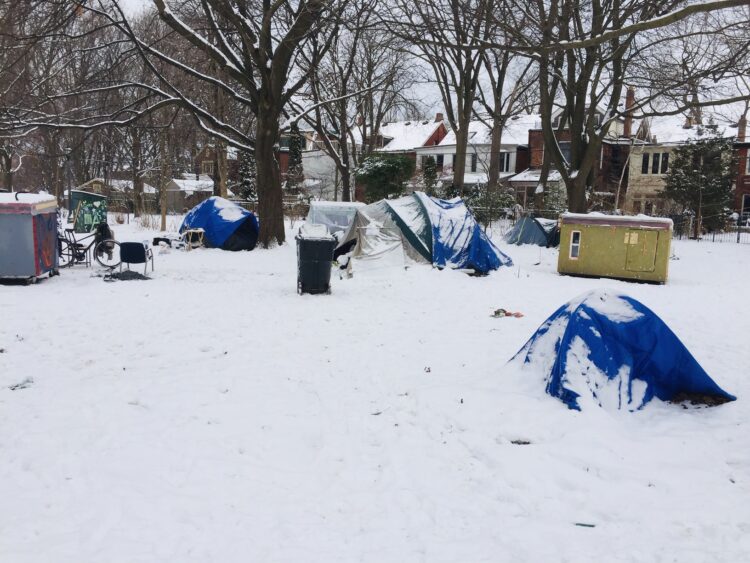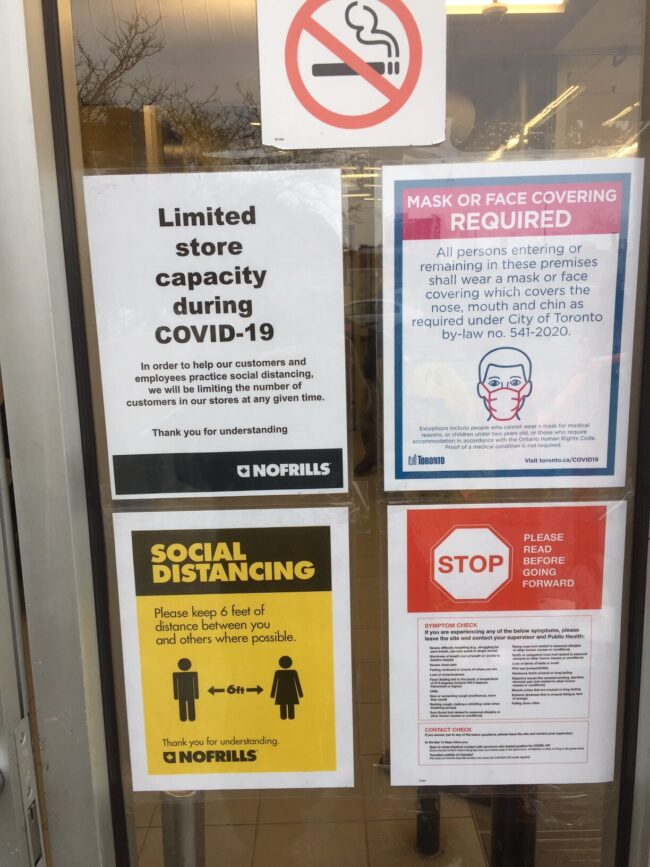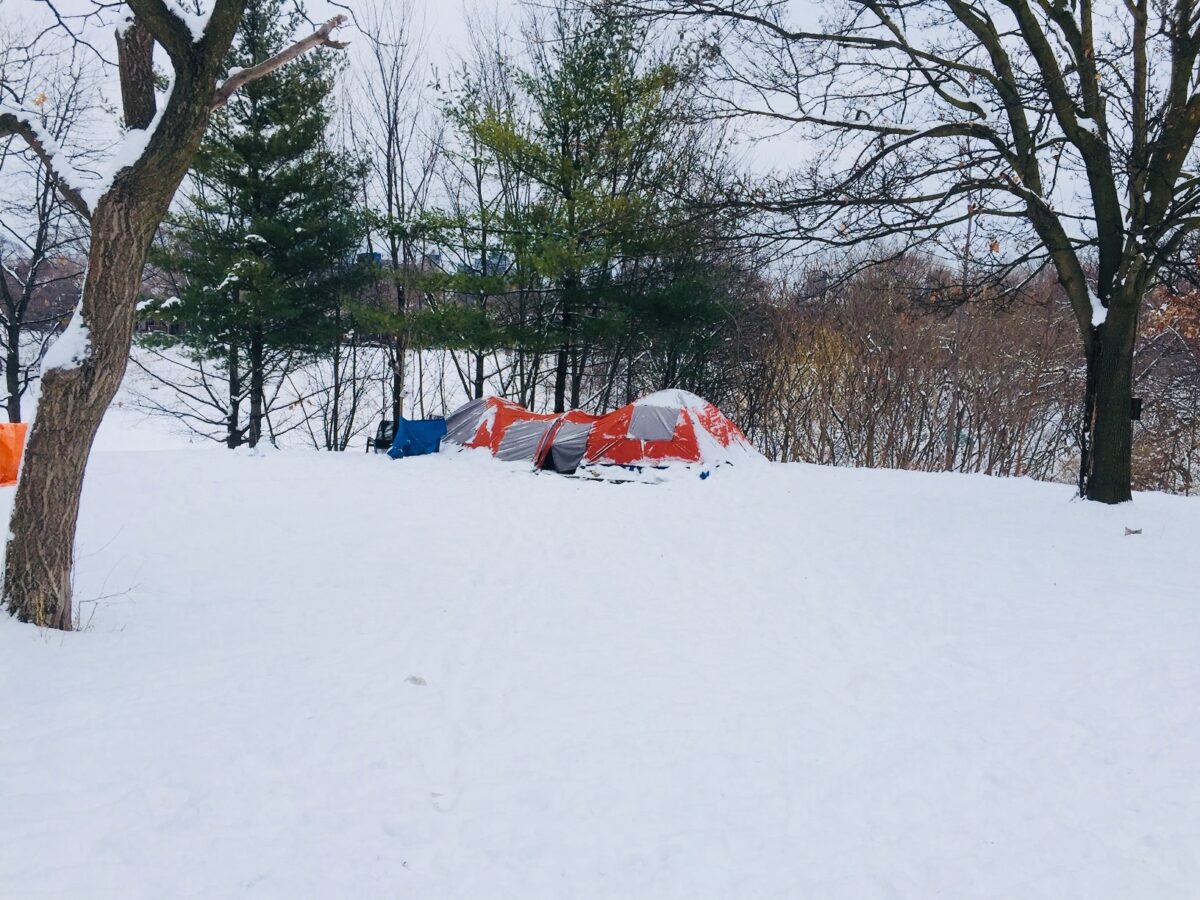With just a few days remaining in the year, I think it’s safe to say that absolutely no one on this beautiful planet will miss 2020, which forever will be synonymous with the dread, burden and grief of the coronavirus pandemic.
This contagion started in the Chinese city of Wuhan last December or January and has inexorably spread its ugly tentacles into every nook and cranny of the world. From Manhattan, Paris and London to New Delhi, Rio de Janeiro and Johannesburg, it has ploughed a path of fear, despair, sickness and death in its noxious wake.
According to the latest statistics, 1.7 million people have died and 81 million have been infected by this insidious virus. In Canada, my home, there have been 15,000 fatalities. Our neighbor to the south, the United States, has reported 335,000 deaths and counting.
It is an invisible, equal opportunity killer, respecting neither national boundaries nor ethnic, religious, color and class lines. Anyone, regardless of age, can succumb to its ravages. It has upended lives on a massive scale.
The normalcy we all crave is gone. We’re on tenterhooks, waiting for it to subside and disappear.
Not since the Spanish influenza pandemic of a century ago, whose victims ran into the tens of millions, has such a uniformly deadly disease befallen mankind. Regardless of whether you’re a Canadian, American, Russian, German, Mexican, Israeli, Egyptian, Vietnamese or Brazilian, everyone is suffering.
We’re all in this together, for better or worse.

With three vaccines — Pfizer-BioNTech, Moderna and Sputnik — having been developed in record time to combat it, and with a third one, Astra Zeneca, practically ready to be distributed, there is finally relief in sight and a glimmer of light at the end of a very long and dark tunnel.
But in the meantime, as medical experts unanimously agree, we should be careful. We need to wear masks in public spaces, abide by the rules of social distancing, avoid crowds, confine our socializing to people in our bubble, and wash our hands with soap regularly. Regrettably, some or all of these rules are being recklessly flouted by a minority of idiots who are endangering everyone.
I live in southern Ontario, where more than 2,000 daily cases have been reported in the last little while. So dire and dangerous is the situation that Premier Doug Ford had no alternative but to impose a 28-day lockdown on the region on December 26. It’s the second lockdown in nine months, and it couldn’t have come sooner.

Non-essential businesses like cinemas, spas and clothing stores have been ordered to close, and restaurants can offer only takeout and curbside service. The economy is taking another huge hit as more employees lose their jobs and are forced to apply for social welfare benefits.There has not been an economic crisis of this magnitude since the great Depression of the 1930s.
The federal government is providing helpful emergency assistance to business owners and the army of jobless, but these measures, while appreciated, can only paper over what is surely a disaster whose repercussions will be felt for years.

In a sign of the times, tent encampments have sprung up in parks and ravines in Toronto, where I live. I suppose their occupants are unemployed people without savings who cannot afford to pay rent in a city with Canada’s highest cost of living, or people dependent on welfare who, due to the pandemic, have decided to avoid shelters altogether.
Tents began sprouting up in Trinity-Bellwoods Park, one of my favorite parks, last summer. As the chill of autumn approached, more tents appeared. There were fewer tents when I walked into the park on an overcast morning on December 27, the first time I had been there since early November.
Much to my surprise, a few tents have popped up in fairly secluded parts of the Nordheimer ravine, which cuts through an affluent mid-town neighborhood. One such tent was erected less than 100 meters away from a multimillion dollar house facing the ravine.
My wife and I have been riding out the storm by hunkering down for the past nine months. We have kept a low profile, not having met friends or acquaintances up close and personal in months.
We last socialized with our two daughters in mid-February, when we gathered in a Greek restaurant to celebrate my wife’s birthday. We have seen and talked to them on a fairly regular basis since then, but only at a proper distance. We have not invited them into our home, nor have we gone to theirs. We greatly miss our mutual visits, meals, conversations, hugs and kisses.
On occasion, I have taken walks and bike rides with my daughters, but the requirements of social distancing and masking have somewhat tarnished these experiences.

Food shopping is an activity I enjoy and take for granted. Not anymore. These days, at my wife’s insistence, I rarely go into supermarkets, and we shop online. She likes this system, but I don’t. There is a marked loss of control in online shopping. All too often, items we order are sometimes unavailable. When I do venture into stores, wearing a mask and a plastic shield for extra protection, I run into an annoying problem when mist fogs up my line of vision.
We have not travelled since early last January, when we spent a quiet and enjoyable warm-weather week in Cuba with another couple in an all-inclusive hotel in Varadero. I would dearly love to return to the Caribbean for a winter break, but with the virus still flaring wildly this has become an impossible dream for now.
We may be able to resume our travels once the vast majority of the population is vaccinated, but I don’t expect this to happen until at least next autumn. Until then, we will exercise caution.
I can only hope this nightmare will end reasonably soon. Frankly, it has worn us down a bit. My basic habits and routines have not intrinsically changed since the virus went viral, but I yearn for the good old days when continuity was the norm rather than the exception.
